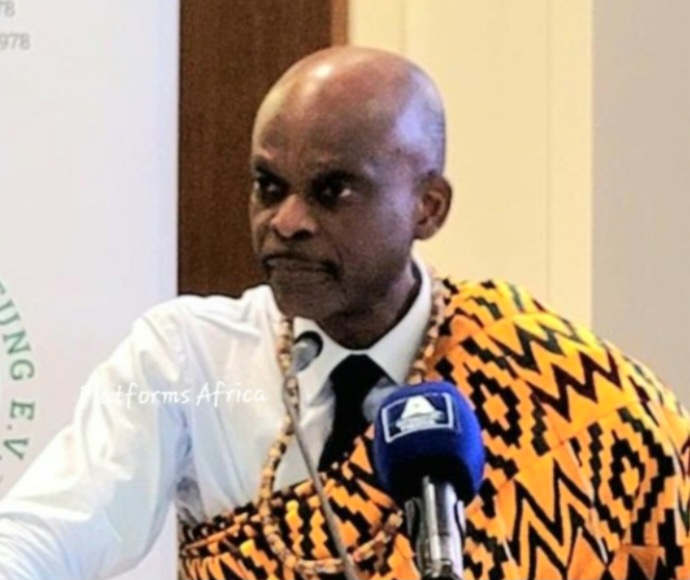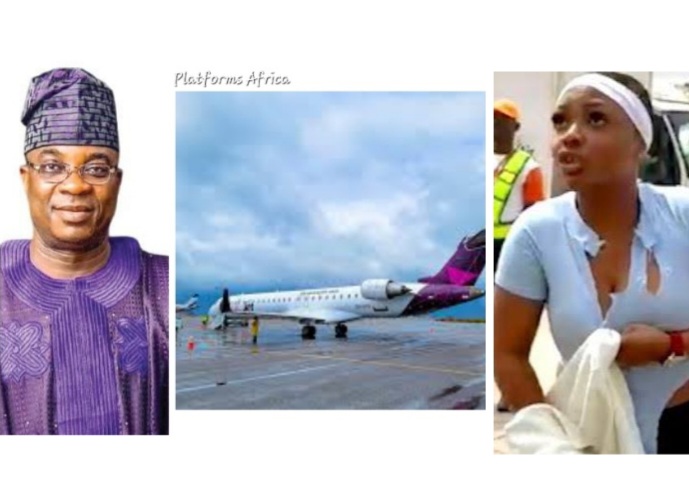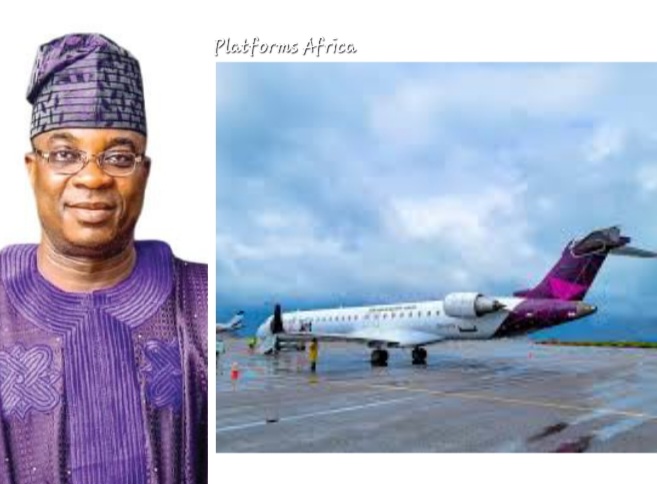An agelong African proverb says, until the lions have their own historians, the history of the hunt will always glorify the hunter. This seems to be the case with African history because, Africans have not written about their past the way it should. As a result, those who colonised the continent, have kept the real history away, and replaced it with what they think of the continent. Against this background, Togo’s foreign minister, Robert Dussey, has embarked on a crusade to tell the true African history.
One such information that Dussey says has for a long time been hidden from Africans, is the fact that, it was the ancient Mali Empire that came up with a codified human rights law in their constitution in the 13th century long before others.
That was more than 500 years before the French’s “Declaration of the Rights and of the Citizen”. Unfortunately, Africa is never credited with the Charter of Manden. Historians say the “Charter of Manden also known as the Charter of Kurukan Fuga, or the Mande Constitution, is a legal and social document that dates back to the 13th century in the Malian Empire, and it outlined the principles for the Malinke clan society, emphasizing social harmony, the sanctity of life, education, food security, and environmental protection.”
Marry, Divorce or Die, You Have Fingers To Lose; Damn Tale of Dani Tribe
Togo Has Taken Up Challenge To Revive Pan-Africanism, By Francis Kokutse
WAPCo Begins Pipeline Maintenance Phase 2, Allays Power Outage Fear In Ghana, Togo, Benin Republic
Headmistress Slumps, Dies During Retirement Ceremony
Born Same Day With Same Face, Tale of Busoye Twin, UI Graduates With Same Grade
No Fat, No Prize: Bodi Tribe Where Only Fattest Men Are Heroes
Speaking at the “London Conference: 125 Years Later, Pan-Africanism and Dialogue on Reparation,” held at the School of Oriental and African Studies (SOAS) in London on April 9, Dussey said, “it is not true that Africans did not know anything about protecting the rights of their people,” adding that the protection of human rights did not start from France as the history books say.
“For this reason, Africa should start teaching their children the truth about the Charter of Manden that was proclaimed in 1236 on the occasion of the enthronement of Sundiata Keita, which laid down the basic principles of governance of the Mali Empire and consisted of 44 articles which allowed the social life of the empire to be organised in peace,” Dussey said.
He said the Manden Charter is one of the oldest constitutions in the world and was inscribed on UNESCO’s Representative List of Intangible Cultural Heritage of Humanity in 2009, demonstrating its historical and cultural importance of the whole world.
Though the Mali Empire no longer exists, the words of this charter and the rights associated with it, are still passed down from generation to generation in a highly codified form and was replicated in the French Bills of Rights 500 years later.
The conference in London is part of the preparatory meetings that have been held over the past two years to set the stage for the 9th Pan-African Congress to be held in Lome, Togo in December this year. Dussey said, the Congress will be used to reiterate the legitimate demands of African people for greater justice and equality.
“From Paris in 1919 to Accra in 1958, via Dar es Salaam in 1974 [and to Togo in 2025], each gathering was used to strengthen the determination of African people to demand and end the historical injustices,” adding that, “it should be clear for them that neither time nor contempt will overcome our determination to obtain reparation. Our pain is acute.”
Dussey said, “Togo is committed to working towards reparation and reconciliation with the past and for the advent of a better world. We are deeply convinced that humanity and equality are indivisible and the future of relations between our peoples can only be consolidated by justice.”
On the 125th anniversary after the first Pan-African Congress in London he said, the visionaries who met at the time, had “a clear vision to unite the people of Africa, oppose the exacerbated racism, exclusion and oppression suffered by Africans and people of African descent,” adding that, it reminded Blacks of “the strength of our historical ties, our ability to win great battles when we are united, and the imperative to continue the fight, despite obstacles and dangers, the struggle of justice and equality for the people of Africa and its diaspora.”
Dussey said “since 1900, a long and arduous road has been travelled, made by challenges, sacrifices, and resilience. Some milestone victories have been achieved, but the decisive victory over the historical injustice remains to be won. Indeed, we cannot be satisfied with the apparent end of slavery and colonisation as the final stage of our struggle.”
He said the London conference was as important as it was 125 years ago, because of the issue of reparation for Black people whether they are from North and South America, the Caribbean, Africa or elsewhere, because ‘it is at the heart of demand of dispossessed, enslaved, deported, and colonised peoples”.
Dussey said, the demand for reparation is not a “violent revolution,” but a dialogue that had to be initiated in a genuine, sincere, and respective manner for the crimes that were committed against the people of Africa. Akyaaba Addai-Sebo, a Pan-African activist, credited with the recognition of the Black History month in the UK said, “Pan-Africanism is against colonialism, which is nothing else but a serial act of dehumanisation, and for it to succeed, it has to dehumanise every aspect of indigenous life.
“It starts with, our science and technology is bad. Your language is bad. Your songs and everything is bad,” Addai-Sebo said, adding that, “Pan-Africanism is an act of decolonisation. So, we decolonise to humanise.”
He said, colonisation also started with a doctrine of discovery which mandated the monarchs of Europe to go to Africa and colonise us. Though Africa has its own doctrine of Pan-Africanism, which is the philosophy and ideology of decolonisation and development, it is not taught on the continent.
Barryl Biekman, a commissioner from the Commission on Diaspora Affairs of Africa’s sixth region made up of the Black Diaspora, said despite the end of the system of slavery and states ratifying the UN international convention on the elimination of all forms of discrimination and other European anti-discrimination policies, and measures based on the principle of equality the problem of Afrophobia still persists.
Biekman therefore recommended the declaration of 2026 as a year of remembrance and renewal commemorating the 25th anniversary of the United Nations world conference against racism and the Durban programme of action situating racial justice as the fundamental component of reparatory justice.
Eric Philips, chairman of the Guyana Reparation Committee, said “the real crisis of our time is not memory, but measurement. Not guilt, but accountability. The problem of the 21st century is not colour; it is uncorrected theft.”

Philips said after 125 years, Black people have returned to London, “not as orphans of a stolen continent, but as claimants of an unfulfilled debt. The tools we bring out today were unavailable in 1900, and these are the Durban Declaration of 2001, the UN General Assembly Resolution 77-249, the principles of Just Cogent, and continuing wrongs which makes our claim not only moral, but inalienably legal. “Let us be clear, this generation will not walk away with apologies alone” he said.
Deputy Vice-Chancellor for research and knowledge exchange at SOAS, Laura Hammond, paid tribute to all the Black people that have passed through their walls and championed the cause of the Black race and mentioned, Walter Rodney, whose work was on the slave trade, published in 1970 and was acclaimed for challenging the conventional wisdom on the topic.
Hammond said SOAS engagement with Africa is based on a desire to develop and strengthen equitable partnerships in research, knowledge exchange and teaching, adding that, they recognise “Africa has huge potential in terms of its human resources, its natural resources. It is home to the youngest population in the world, and there is a huge need to support the talent that is coming up, to support education and training of that next generation of political leaders, entrepreneurs, artists and thought leaders.”
She said they are actively developing partnerships with universities across the continent to create opportunities for students from Africa to benefit from jointly designed, jointly taught, and jointly accredited programmes of study. The first of these is with the University of Witwatersrand, which is a PhD in Development Economics, now in its second year. Other programmes are being developed in South Africa, Uganda, Ethiopia, and many other countries.
These programmes give an important opportunity to provide excellent education to students who may not otherwise be able to travel all the way to the UK and may not be able to afford the price tag, which is shamefully high. In research, SOAS is working really closely with universities and think tanks across the continent.
Platforms Africa





